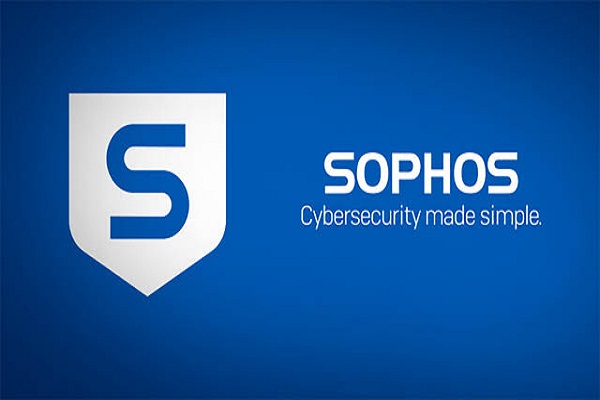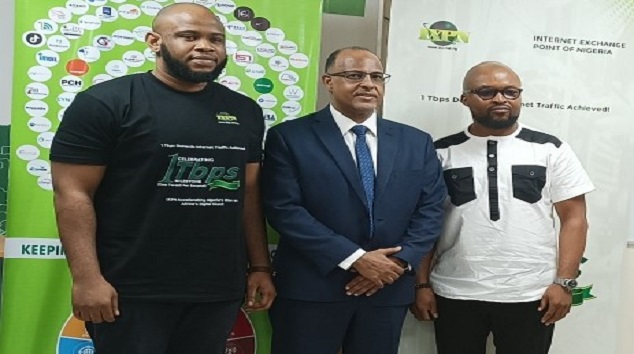Telecom
Cybercriminals Are Doubling Down on Credential Theft, Launching More Innovative Ransomware Attacks – Sophos 2023 Threat Report Reveals

Sophos, a global leader in innovating and delivering cybersecurity as a service, has on Monday published its 2023 Threat Report.

The report details how the cyberthreat landscape has reached a new level of commercialization and convenience for would-be attackers, with nearly all barriers to entry for committing cybercrime removed through the expansion of cybercrime-as-a-service.
The report also addresses how ransomware remains one of the greatest cybercrime threats to organizations with operators innovating their extortion tactics, as well as how demand for stolen credentials continues to grow.
Criminal underground marketplaces like Genesis have long made it possible to buy malware and malware deployment services (“malware-as-a-service”), as well as to sell stolen credentials and other data in bulk. Over the last decade, with the increasing popularity of ransomware, an entire “ransomware-as-a-service” economy sprung up.
Now, in 2022, this “as-a-service” model has expanded, and nearly every aspect of the cybercrime toolkit—from initial infection to ways to avoid detection—is available for purchase.
“This isn’t just the usual fare, such as malware, scamming and phishing kits for sale,” said Sean Gallagher, principal threat researcher, Sophos. “Higher rung cybercriminals are now selling tools and capabilities that once were solely in the hands of some of the most sophisticated attackers as services to other actors.
“For example, this past year, we saw advertisements for OPSEC-as-a-service where the sellers offered to help attackers hide Cobalt Strike infections, and we saw scanning-a-service, which gives buyers access to legitimate commercial tools like Metasploit, so that they can find and then exploit vulnerabilities.
“The commoditization of nearly every component of cybercrime is impacting the threat landscape and opening up opportunities for any type of attacker with any type of skill level.”
With the expansion of the “as-a-service” economy, underground cybercriminal marketplaces are also becoming increasingly commodified and are operating like mainstream businesses. Cybercrime sellers are not just advertising their services but are also listing job offers to recruit attackers with distinct skills. Some marketplaces now have dedicated help-wanted pages and recruiting staff, while job seekers are posting summaries of their skills and qualifications.
“Early ransomware operators were rather limited in how much they could do because their operations were centralized; group members were carrying out every aspect of an attack. But as ransomware became hugely profitable, they looked for ways to scale their productions. So, they began outsourcing parts of their operations, creating an entire infrastructure to support ransomware. Now, other cybercriminals have taken a cue from the success of this infrastructure and are following suit,” said Gallagher.
Indeed, as the cybercrime infrastructure has expanded, ransomware has remained highly popular—and highly profitable. Over the past year, ransomware operators have worked on expanding their potential attack service by targeting platforms other than Windows while also adopting new languages like Rust and Go to avoid detection. Some groups, most notably Lockbit 3.0, have been diversifying their operations and creating more “innovative” ways to extort victims.
“When we talk about the growing sophistication of the criminal underground, this extends to the world of ransomware. For example, Lockbit 3.0 is now offering bug bounty programs for its malware and ‘crowd-sourcing’ ideas to improve its operations from the criminal community. Other groups have moved to a ‘subscription model’ for access to their leak data and others are auctioning it off. Ransomware has become, first and foremost, a business,” said Gallagher.
The evolving economics of the underground has not only incentivized the growth of ransomware and the “as-a-service” industry, but also increased the demand for credential theft. With the expansion of web services, various types of credentials, especially cookies, can be used in numerous ways to gain a deeper foothold in networks, even bypassing MFA. Credential theft also remains one of the easiest ways for novice criminals to gain access to underground marketplaces and begin their “career.”
Sophos also analyzed the following trends:
·The war in Ukraine had global repercussions for the cyberthreat landscape. Immediately following the invasion, there was an explosion of financially motivated scams, while nationalism led to a shake-up of criminal alliances between Ukrainians and Russians, particularly among ransomware affiliates.
· Criminals continue to exploit legitimate executables and utilize “living off the land binaries” (LOLBins) to launch various types of attacks, including ransomware. In some cases, attackers deploy legitimate but vulnerable system drivers in“bring your own driver” attacks to attempt to shut down endpoint detection and response products to evade detection.
· Mobile devices are now at the center of new types of cybercrimes. Not only are attackers still using fake applications to deliver malware injectors, spyware and banking-associated malware, but newer forms of cyberfraud have been growing in popularity, such as “pig butchering” schemes. And this crime is no longer just affecting Android users, but iOS users as well.
· The devaluation of Monero, one of the most popular cryptocurrencies for cryptominers, led to a decrease in one of the oldest and most popular types of cryptocrime—cryptomining. But mining malware continues to spread through automated “bots” on both Windows and Linux systems.
To learn more about the changing threat landscape in 2022 and what it means for security teams in 2023, read the full Sophos 2023 Threat Report.
Telecom
Nigeria Hits 1 Terabit Internet Traffic Milestone

IXPN, Nigeria’s leading Internet Exchange Point, is proud to announce a landmark achievement: crossing 1 Terabit per second (1Tbps) in aggregate peak domestic internet traffic for the first time.

This milestone signifies a major leap forward in developing Nigeria’s internet infrastructure and underscores the critical role of local internet infrastructure in driving economic growth, innovation, and connectivity for millions of Nigerians.
“This milestone is more than just a number. It’s a symbol of Nigeria’s digital maturity and our united strides towards becoming a tech-driven nation. By keeping local internet traffic within Nigeria, we reduce costs, improve speeds, and ensure our digital economy thrives with homegrown infrastructure.” said Muhammed Rudman the CEO of IXPN.
“Achieving 1 Tbps is a significant victory for Nigeria’s ICT ecosystem, a breakthrough for domestic internet traffic. It serves as a catalyst, enabling millions of Nigerians to enjoy faster, more affordable, and resilient internet connectivity.”

1 Terabit per second is a game-changer for Africa’s most populous country. To put it in perspective:
- Mega Video Calls: A speed of 1 Tbps can support over 1 million concurrent Zoom calls, allowing students, entrepreneurs, and professionals to connect and drive Nigeria’s digital revolution.
- Streaming Frenzy: With 1 Tbps, more than 200,000 people can stream HD Nollywood films or movies on Netflix simultaneously without any buffering or interruptions.
- Data Superpower: This speed enables the transfer of the entire contents of 50,000 smartphones—including photos, apps, and videos—in just one second.
For Nigeria, hitting this milestone means reducing reliance on international bandwidth, decreasing latency for local services, and strengthening our position as Africa’s digital heartbeat. This milestone is a testament to the power of collaboration, innovation, and the relentless pursuit of a faster, more connected Nigeria.
This accomplishment goes beyond technical advancements; it has significant economic implications. By encouraging local traffic exchange, IXPN reduces dependency on international bandwidth, leading to:
- Significant Cost Savings: By utilizing local data exchange, Nigerian businesses can save millions of dollars annually on international bandwidth fees.
- Enhanced Speed and Connectivity: With reduced latency, users experience smoother streaming, gaming, and real-time services, enhancing their overall online experience.
- Increased Resilience: Strengthening Nigeria’s internet infrastructure protects against global disruptions, ensuring consistent access to vital services such as healthcare and education.
- Improved Efficiency: Optimizes digital services like fintech, edtech, e-commerce, and e-health, propelling innovation and growth in these sectors.
Surveys conducted among IXPN members over the years have shown a growing percentage of local internet traffic in Nigeria. A recent report indicates that some connected members can localize or domesticate up to 70% of their internet traffic through IXPN.
“As more content providers, ISPs, banks, and public institutions localize their traffic through the IXP, end users benefit directly,” added Raphael Iloka (Marketing Manager). “We’re not just routing data — we’re building the foundation for Nigeria’s digital economy.”
The 1 Tbps peak highlights the remarkable impact of collaboration among all stakeholders. This milestone is a significant achievement not only for IXPN, but for the entire ICT ecosystem. IXPN deeply appreciates the vital contributions of all stakeholders involved.
To our Members and Partners: Your trust and participation have been essential to our growth. Together, we have established a hub where networks can interconnect, innovate, and thrive.
To the Government and Regulators: We express our sincere appreciation to the Nigerian Communications Commission (NCC) for all its support over the years and its vision of a digitally inclusive Nigeria.
To our Team: We extend our gratitude to our engineers, network administrators, and all other staff who work tirelessly behind the scenes to push boundaries.
To the Global Community: We are grateful to partner organizations like the Internet Society (ISOC). Your support and advocacy in domestic peering empower us all.
Reaching 1 Tbps is just the beginning. As data demands skyrocket with AI, IoT, 5G, and immersive technologies, IXPN is committed to staying ahead of the curve. Here’s how:
- Scaling Infrastructure: We are investing in advanced hardware and software to support multi-terabit capacities.
- Enhancing Resilience: We are strengthening our network to ensure uptime, security, and adaptability in an ever-changing digital landscape.
- Empowering Underserved Communities: We aim to expand our reach to rural areas, bridging the digital divide, and supporting agritech, edtech, and telehealth.
- Strengthening Africa’s Digital Sovereignty: Partnering with regional IXPs to keep Africa’s data on the continent.
Telecom
TD Africa’s TecHERdemy Empowers 400 Women to Lead in Tech

On April 17, 2025, the atmosphere at Yudala Heights was electric with pride, hope, and inspiration as TD Africa, the leading tech distribution company in Sub-Saharan Africa, celebrated the graduation of 400 young Nigerian women from its flagship TecHERdemy program.

Over the past six months, these incredible women immersed themselves in rigorous, hands-on training in Cybersecurity, Data Science, Artificial Intelligence, and Software Development. They are now confidently stepping into the tech world, ready to make their mark.
The event brought together top voices in the industry, including Dr. Leo Stan Ekeh, Chairman of the Zinox Group, who commended the graduates for their resilience and brilliance. In his keynote speech, he shared a hopeful vision for Africa’s future, calling these young women “the pioneers of a new, inclusive era of tech leadership on the continent.”
Mrs. Chioma Ekeh, CEO of TD Africa, also delivered a heartfelt message, urging the graduates to let their values guide them as they navigate their careers.
“Hold tightly to your values. Let integrity guide your work, let innovation fuel your dreams, and let your impact speak louder than your résumé,” she encouraged.
The ceremony was filled with emotion as graduates shared their personal stories of transformation. One of them, Yetunde Kayode, now a certified data scientist, summed it up beautifully: “This program changed my life. I’m walking away empowered, skilled, and deeply grateful to Mrs. Ekeh and the TecHERdemy team for believing in us.”
Fifteen exceptional participants were also honoured for their outstanding performance and leadership during the program, reminding everyone that excellence comes in many forms.
TecHERdemy, which launched in November 2024, was built with a simple but powerful mission: to equip young Nigerian women with globally relevant digital skills and open doors to a tech career. But what happened over those six months went beyond just skills; it sparked a movement.
This graduation wasn’t just the end of a program. It was the beginning of a brighter, more inclusive future for tech in Africa.
Telecom
MTN Nigeria Faces Class Action Lawsuit over Alleged Data Mismanagement

Nigerians have launched a class action lawsuit against MTN Nigeria, accusing the telecom giant of unexplained data usage and rapid depletion.

The controversy erupted after a viral post on X (formerly Twitter) showcased an individual’s interest in taking legal action, along with evidence of unusual data activity.
This post rallied many others to join the cause, sharing their own grievances and pledging support.
A Google Form was circulated to collect names of affected users, highlighting issues such as false data top-ups and excessive costs without value.
Comparisons to data usage and pricing in other countries only fueled the frustration, and numerous Nigerians expressed their determination to pursue justice.
Social media buzz amplified the issue, with mixed reactions ranging from encouragement to skepticism about the lawsuit’s potential impact.
Meanwhile, MTN Nigeria has not yet released an official response to these allegations.

 Telecom3 days ago
Telecom3 days agoMTN Nigeria Takes Broadband Services to the Next Level with FibreX Launch

 News3 days ago
News3 days agoSERAP Files Lawsuit Against NBC Over Ban on Eedris Abdulkareem’s Protest Song Tell Your Papa

 Telecom2 days ago
Telecom2 days agoDigital Transformation Remains Africa’s Gateway to Economic Advancement – Adumike

 Telecom2 days ago
Telecom2 days agoPAFON 2.0: Experts Discuss Pathways to Boost Financial Inclusion in Nigeria

 General News2 days ago
General News2 days agoEFCC Clarifies SCUML Certificate Misuse amid CBEX Ponzi Scheme Scandal

 E-Financial2 days ago
E-Financial2 days agoCBN, NGX Group Defend Economic Reforms at Nasdaq

 E-Financial3 days ago
E-Financial3 days agoFCMB Group Redefines Corporate Storytelling with The Power Of The Group TVC

 Telecom23 hours ago
Telecom23 hours agoMTN Nigeria Faces Class Action Lawsuit over Alleged Data Mismanagement


























